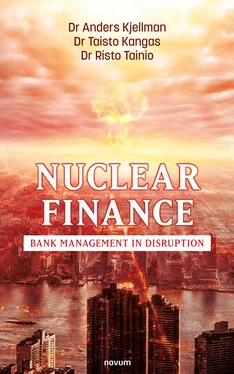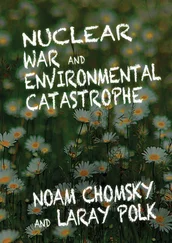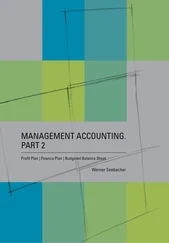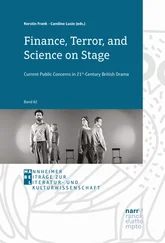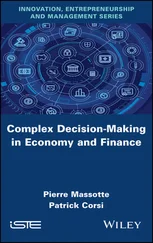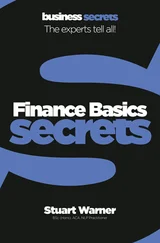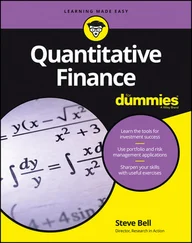If you want to better understand the current ongoing transformation of the financial system in a digitalised post-industrial society, then this is a book for you! We will describe a bank manager’s work in a new way.
The book will deal with:
the complexity of banking,
different types of banks,
financial system transformation away from deposits to digits,
mistakes and errors,
bad bank management,
good bank management and great bank leadership,
why you should start with why,
disruptive financial innovations,
platform economics, and
the future of banking.
Why should you read a book like this? It is a book that will fill the textbook gap between economics, financial management and good bank management. If you want to better understand the transformation of the banking industry and our society, then this is a book for you!
The main reason for writing this book is to shed light on the challenges bankers are facing! From a holistic point of view, we will look at what you can expect as a bank manager? And what your best response options are?
This book will help you to understand the transformation and potential risks in this age of financialisaton; an age which we call the “Age of Nuclear Finance”. We argue that one can see the economically driven world as a set of atomic reactors (bombs in the worst case), that may set off a series of nuclear chain reactions. These reactions can be as surprising as the coronavirus pandemic in 2020. Other potential sparks that can set off a nuclear meltdown of the financial system include traditional over-indebtedness in the housing sector (of countries, corporations and ordinary customers) to lost trust!
In the late twentieth century, Gregory Millman (1995, vii) noted that: “we have witnessed a revolution in finance comparable to the discovery of nuclear power in physics”. This book attempts to describe how this revolution has evolved and what consequences it has and has had on bank management. We define nuclear finance as a finance-driven process in which there exist elements of uncertainty that can explode in a flash, with devastating (or positive) consequences; it is often only afterwards that you realise what really happened. Both negative and positive expectations can instantly cause a rapid chain reaction. In this respect we define nuclear finance differently from Sharpe (1993). We see nuclear finance more as five levels of risk exposure starting from 1) the individual level, 2) the financial institutional level, 3) the global macroeconomic level, 4) the level that relates to the technological development and/or 5) fraud. A nuclear-like financial reaction can without clear warning start at any of these 5 levels with a devastating outcome, i.e., on the individual level you can lose ‘most’ of your financial resources due to a plethora of reasons such as cybercrime, identity theft, confiscation, war, bankruptcy, etc.
For decades, the World Bank and the IMF have warned about high levels of debt in China. At the same time, overvalued shares, derivatives or other financial instruments in the US, EU or Japan can, in a fraction of a second, initiate a new financial meltdown like the so-called subprime crises, which can also be called the Global Financial Crisis of 2008. Another example is when the world was quarantined during the “Corona Crisis” of 2020–1 (or COVID-19), followed by a meltdown of financial markets! The Corona Crisis of 2020 caused a deep fall on stock markets around the world; bank shares in particular dropped by 25 percent to 75 percent during the first quarter of 2020.
Banks and the management of banks have changed during recent decades. Along with traditional deposit and investment banks, a big group of shadow banks; “casino” banks, payment creators, trading platforms and payday lenders have entered into the financial markets. In addition to this, we are living in a world where bank managers and politicians find it difficult to understand the changing financial system. It is evident that not all bankers understand what is going on; however we hope that this book will cast some light on the complex issues of banking.
What is a bank manager’s role and effect on the rise of finance and in the transformation of financial systems? Is it even possible to tell? What we are saying is that today there are many unseen traps in banking, both for the banks and for the banks’ customers. However, by comparing bad, opaque (uncertain), complex banking, with good, distinct and transparent banking, you will be able to identify some of the factors behind good bank management.
In this book, we will analyse the changing content of a bank manager’s work and management. The bankers are facing change in many ways. They have to know and master aspects like customer assessment and risk management as well as support and create growth for customers and wellbeing for employees. We are interested in knowing if we need a different kind of bank manager and even different bank management in different bank arenas? We argue that a bank needs a management team, which should work together like a jazz band; wherein the team is collectively responsible for the results the bank achieves.
In 1923 the Banker Paasikivi (2000) noted “Banks are important and can be seen as the veins and arteries through which blood flows; without them – life as we know it – is not possible”; and we note that the role of banks is still to promote the business community, individuals and social development. The task is so important that society must demand more common good and higher moral standards in all bank arenas (von Fieandt, 1970).
It appears that bankers, throughout history, have become tired of traditional prudent banking and prefer higher gains and increased tensions instead. We have seen how greed transforms banks, time and time again. This seems to be a common factor behind many problems in the banking industry, both today and probably far into the future!
We have, in addition to central banking, identified three main ways of describing bank management in transition during the Age of Nuclear Finance:
1 Management in Credit-based Banking, i.e., local retail banking; there are still many banks that take in deposits and lend the obtained money as needed. Bank managers see and meet the customers of the bank. Management in credit-based banks has remained more or less the same, even if the digitalization of activities is ongoing. You need to be a trustworthy partner, who knows your customers, legal obligations, competitors and introduces new technology at a moderate pace. The financial result emerges mainly from fees and the difference between deposit rates and bank lending rates.
2 Management in Capital and Asset-based Banking; a transformation is occurring from a credit-based to a capital-based financial system. In a credit-based system, the depositors’ money is lent onwards, while in a capital-based system ordinary deposits are of minor importance. Instead, bank experts are taking over and influencing both the customers and the banks on where to invest assets. Traditionally this involved investment banking with mergers and acquisitions and trade finance. In the capital-based bank world, the bank manager is more of a report and number collector. In fact, the bank manger does not often see or have to meet the customers. However, the customers need a trustworthy, often regulated partner. In capital-based banking, the value for the bank is created through provisions, fees and asset management.
3 Management in global and shadow “Casino” banking: banking is facing global regulation, which leads to off-balance positions. The financial institutions are also facing a digitalization revolution, where business, shadow banking and politics are intervened in a blurred way into a nuclear financial cocktail. Shadow banking operates in various forms; from tax havens, to international payment platforms, such as PayPal, Amazon Pay, Alibaba (Alipay), Google Pay, WeChat Pay to hedge funds, casino betting, global insurance exposures, printing of e-money, fraud, money laundering, new derivative instruments, new instruments, investment banking.The profit from global shadow banking is mainly created from casino type managerial activities. You bet that share prices, bond yields, money instruments, derivatives, property and/or something else will go up or down. Some bankers are even interested in blockchain currencies, for example cryptocurrencies, which can be classified as typical casino, pyramid games deep in the world of shadows, with no regulation. This combination practised by shadow banks imposes a great systemic risk to the entire banking system in the world.
Читать дальше
